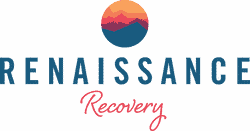Cocaine Rehab
What to Expect from Cocaine Addiction Treatment
Cocaine is a hazardous drug with a high potential for addiction, that said there are cocaine rehab programs available to help anyone. If you’re addicted to cocaine or have a loved one who is, admission into a drug rehab in California is the first step towards lasting cocaine addiction recovery.
Our team at Renaissance Recovery has first-hand experience of not only working with people who are dealing with addiction, but dealing with it themselves. Call our team today to learn more about cocaine abuse and how you or your loved one can enter a cocaine abuse recovery program.

By: Renaissance Recovery
Clinically Reviewed by: Diana Vo, LMFT
Last Updated:
02/29/2024
Cocaine Addiction Rehab
Our cocaine addiction treatment center focuses on substance-specific treatment to help meet your particular needs. Cocaine addiction presents unique challenges, withdrawal symptoms, and mental health issues. Therefore, we provide a specialized approach from therapists who understand the disorder.
Your therapist will work with you to address the issues surrounding substance abuse. You will have an in-depth knowledge of why you are addicted to cocaine and what you can do to recover from your addiction. A treatment specialist will perform a full assessment of your addiction and work with you to develop an appropriate treatment plan.
Everyone’s addiction treatment program will look different, but you can likely expect some of the same forms of therapy and counseling to show up, including:
- Cognitive behavioral therapy
- Group therapy sessions
- Individual therapy sessions
- Family therapy sessions
All of these treatment methods will help clients learn about their addiction and aid them on their recovery journey.

Cocaine Treatment Options
When it comes to cocaine addiction treatment, there are a number of routes you can take for finding the right cocaine rehab. For starters, it is best to seek out the help of a detox program to help you or your loved one get through the harsh symptoms of cocaine withdrawal. From there, clients have an option between inpatient and outpatient treatment.
At Renaissance Recovery’s intensive outpatient program, or IOP, our clients go through a number of different treatment modalities and therapeutic methods. All of these treatment options are in place to help clients learn about their addiction and develop ways to fight back against their feelings to use and develop relapse prevention strategies.

Cocaine Addiction Treatment Success Rates
While cocaine addiction treatment can be highly effective, many cocaine users relapse. Around 25% of those who pursue treatment relapse during the first year. While this number does seem high, it is important to remember what would happen to most if treatment was never sought out. To prevent our clients from relapsing we offer relapse prevention therapy and training along with sober living so our clients leave recovery with the tools they need for success.
The way in which the drug impacts the central nervous system as well as the brain means it’s devilishly addictive, even when you think you’ve consigned it to the rear-vision mirror.
All this said, there are relapse prevention strategies and craving mitigation methods that will be taught. And, at Renaissance Recovery, we pride ourselves in our aftercare program that includes our robust alumni community. This is a tool that our current and former clients rely on to overcome periods of weakness and stay on the straight and narrow.
How Much Does Cocaine Rehab Cost?
The cost of cocaine rehab will depend on a number of factors including the levels of care you require and if the treatment program accepts insurance.
At Renaissance Recovery, we work with many insurance providers to ensure treatment is as accessible as possible call our team to verify your insurance today.
Call Now
Fight Back Against Cocaine Addiction
Get evidence-based treatment to overcome cocaine addiction at Renaissance Recovery. Call our team now to learn more about the process.

Dual Diagnosis Cocaine Addiction Treatment Center Programs
One problem among people with cocaine addiction, and addiction in general, is the development or exacerbation of mental health problems as the addiction gets worse.
Someone dealing with addiction can often struggle with overlapping mental health illnesses including problems such as depression, anxiety, post-traumatic stress disorder, and more.
For those dealing with these issues, it is vital to get treatment for both problems if you want to see a full recovery. Handling only one or the other will only lead to a relapse. Unfortunately, not many treatment centers are equipped to handle this type of dual diagnosis problem.
At Renaissance Recovery Center, we provide comprehensive dual diagnosis cocaine addiction treatment. Our addiction therapy services and cocaine addiction treatment programs in Southern California will help you overcome both the physical symptoms of substance abuse, and mental health disorders fueling your addiction so you can make a lasting recovery from cocaine.
Cocaine Rehab Center Admissions
You can start the rehab admissions process online or directly call the Renaissance Recovery Center at 866.268.1206. Our rehab coordinator will ask for basic information such as your name, medical, mental health, and drug use history.
Furthermore, our rehab admissions coordinator will also ask you about what drugs you are currently using, how often, and how much, to provide us with a better understanding of the severity of your cocaine addiction.
Next, the coordinator will verify your insurance benefits by contacting your insurance provider. This usually helps expedite the process, and the rehab coordinator will know how to deal with the insurance provider to ensure you get the best coverage options. Insurance providers are not allowed to deny you coverage outright, but they may not pay the entire expense of cocaine addiction treatment. However, the rehab admissions coordinator will advise you about what part is covered under your plan and your financial options for cocaine addiction treatment at a cocaine addiction treatment center in Southern California.
Cocaine Detox Help at Renaissance Recovery
You don’t need to suffer from cocaine addiction anymore. At Renaissance Recovery we can help with every step of the addiction treatment process. While our drug abuse programs specialize in partial hospitalization programs, intensive outpatient treatment and aftercare, including support groups like Narcotics Anonymous or Alcoholics Anonymous, we have connections all across the Orange County area to help you get treatment for cocaine addiction.
This includes help with:
- Interventions
- Medically monitored cocaine detox
- Inpatient treatment
- PHPs
- IOP and outpatient treatment
- Aftercare
Whether you are looking for detox services, a cocaine rehab for young adults, or a treatment program that offers family member therapy, our team at Renaissance Recovery is here for you. Our evidence-based treatment program can help anyone dealing with cocaine use disorder understand their addiction and develop the strategies and tools they need to aid them in long-term recovery.
If you would like to learn more about our rehab or speak to our addiction treatment professionals, call our team today and get the process started.

